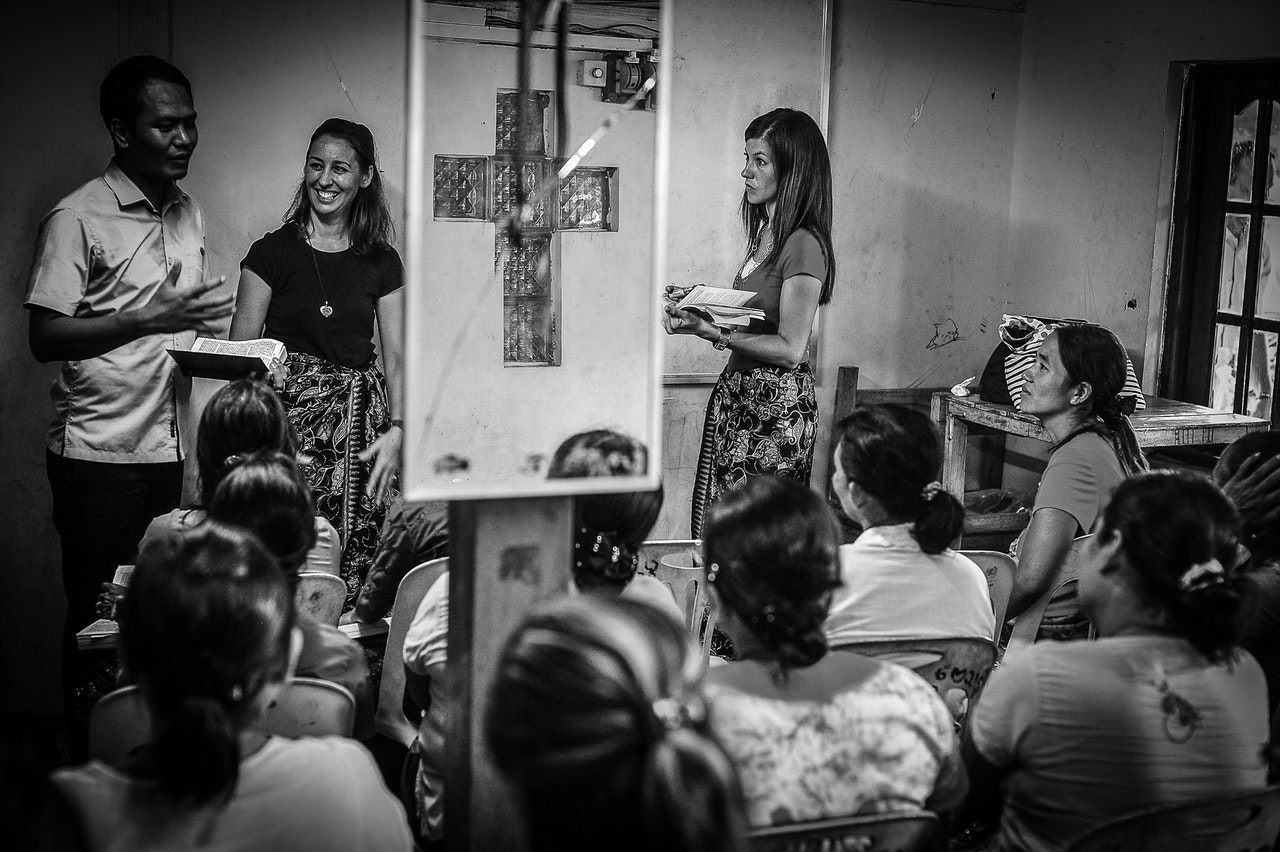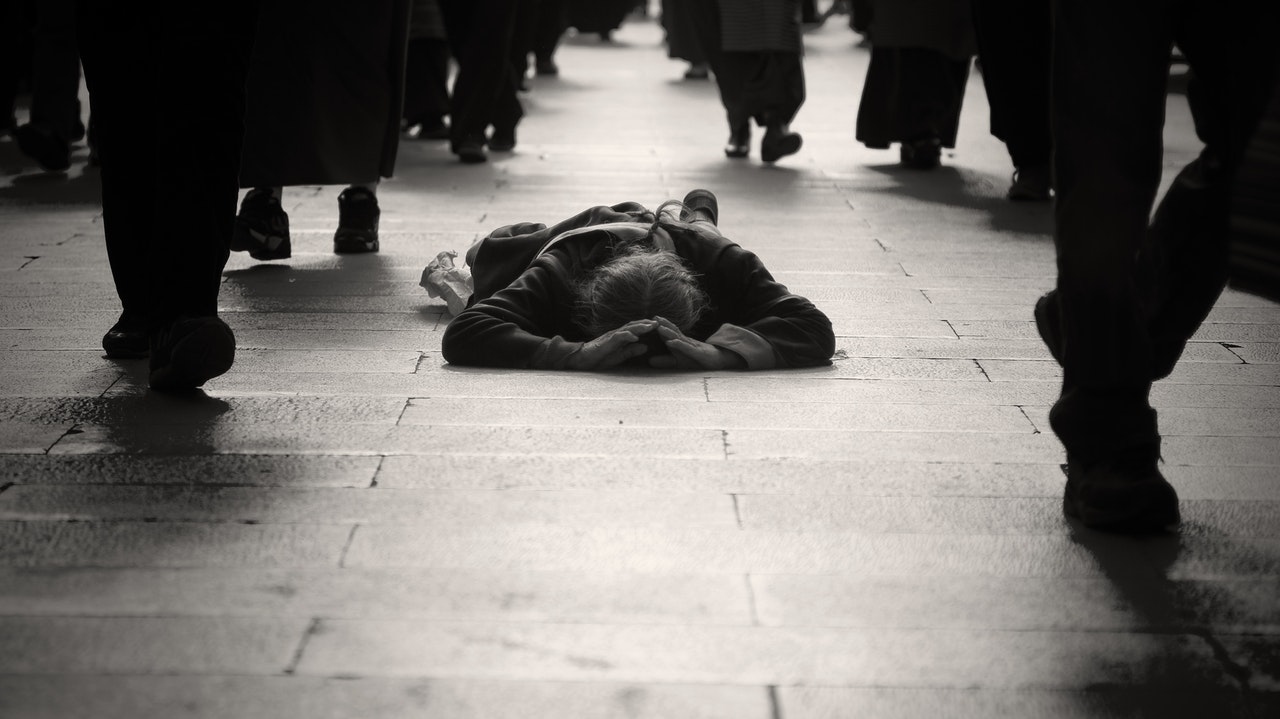Reflection for the First Sunday of Advent. Year B.
– By Fr Ugo Ikwuka
Archway, London
Before a baptism, the priest solemnly says to the child’s young father “Baptism is a serious step. Are you prepared for it?” And the young man replies “Pretty well, father. My wife has made some snacks and we have a caterer coming.” “I don’t mean that,” said the priest, “I mean, are you prepared spiritually?” And the young man replies “Sure father, I’ve got some bottles of whiskey and brandy.”
We may laugh at the young man, but there isn’t much difference with the way we prepare for the coming of the Lord at Christmas with the glitter of street decorations and the seasonal background music in the shops that put us in the right mood for spending.
Here is a quiz for you. You are sleeping, and in your dream, a big lion is chasing you. You try to run but at every side is a ferocious wild animal. How do you escape? The answer is: Wake up!
That’s also what today’s Gospel tells us to do to prepare for the Lord’s coming. Remain alert in spirit. Don’t get lost in loose living.
A child was asked why it was necessary that he should keep quiet in Church. He said because people are sleeping.
Why is sleep so critical? Yes, we reset and refresh our body during sleep. But also, people lose their guard while asleep. Most hazards occur while people are asleep; fire, burglary, flooding. Road accidents occur when drivers sleep on steering.
In the Bible, Samson, the strong man, was sleeping on the laps of Delilah when she shaved his head where his power lies and handed him over to the enemy (Judges 16:19).
A nun was once prosecuted by the transport police here in the UK because she fell asleep on the train and was carried beyond her destination to where her fare did not cover.
In one of his parables, Jesus noted that it was while people were sleeping that the devil sowed the poisonous seeds that threatened the life of their healthy crops. The time people sleep is, therefore, a very precarious time.

To be awake is to be fully present to the realities of every day; to the joys and the challenges, rejoicing with those who rejoice, and mourning with those who mourn.
This is well conveyed in the opening words of the Vatican II document on the church in the modern world (Gaudium et Spes). It says: “The joys and the hopes, the griefs and the anxieties of the men of this age, especially those who are poor or in any way afflicted, these are the joys and hopes, the griefs and anxieties of the followers of Christ. Indeed, nothing genuinely human fails to raise an echo in their hearts.”
Being awake first and foremost means being humbly grateful for all that God has done and continues to do for us. It means being aware of his presence and action in and through the people around us.
We are supported by so many people, most of whom we do not even know. Many, by their labours, make available our daily food and drink. Every time we bite into a fruit or sip from a cup of coffee, think of the many that have brought those lovely taste and aroma into our lives. Most of them work under oppressive conditions. How often do I thank God and appreciate them? Through them, God’s love and care come daily into my life but we can so easily take it all for granted. Yes, you bought the groceries with your money but if they are not available, you couldn’t eat your money.
The psychology of mindfulness, which has become very popular today, promotes becoming more aware of the present moment, paying more attention to the world around you and experiencing afresh the things that we have been taking for granted.
Today, it is officially recommended as effective in improving mental health. It is easy to lose touch with reality as we get caught up in our thoughts.

Flat or inappropriate affect is one of the serious symptoms of psychosis (madness). Flat affect means showing no emotions in the face of realities or stimuli that should normally elicit some emotional reactions, while inappropriate affect means displaying emotions that are incongruous with the reality at stake such as laughing at the news of a tragedy.
Today, for instance, we, in this part of the western world have gotten so used to the news of violence far away from us; in Iraq and Libya that they no longer make breaking news. Violence appears to make breaking news only when we are the victims.
We have lost the sense that the daily violence we watch from the comfort of our living rooms is the living realities of human beings like us. Perhaps we are complicit in some of the crises but we vote to lock our doors against those fleeing from them.
The doorkeeper in today’s Gospel is called to stay awake so as to recognise and welcome the Lord whenever he “suddenly” appears. Recognition is crucial because the Lord does not always come in easily recognizable ways.
At Bethlehem, he came in the form of a baby and people did not recognize him. In the Parable of the Last Judgment, which we heard last Sunday, he said he came in the form of the needy; the hungry, the sick, the naked, the stranger, the lonely and many did not recognize him. But true people of faith did recognize him and serve him in these people who live in the blind-spot of society.

Being awake also means being ready to see God anew in those people who have become too familiar that we are beginning to take them for granted: your wife, your husband, your children, your parents, your sisters, brothers and even your friends. Drivers take all sorts of stimulants to stay awake on steering. So what can help us to stay awake? The living word of God!
It will speak to us incisively during this season. As the Book of Psalms prays, as we hear his voice (this season) let us not harden our hearts!




